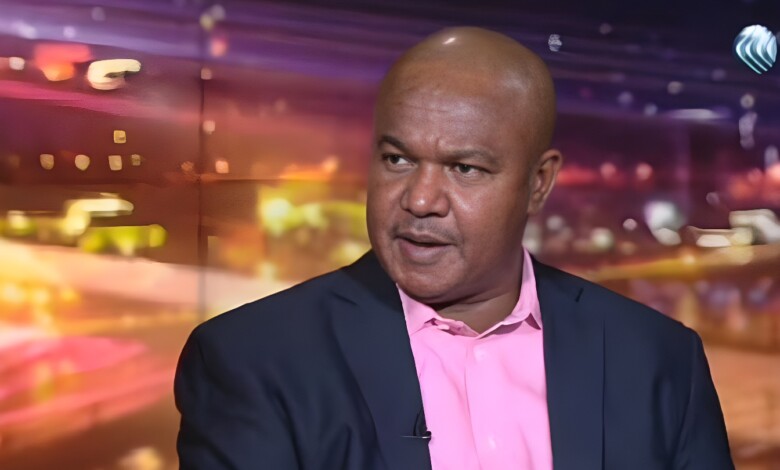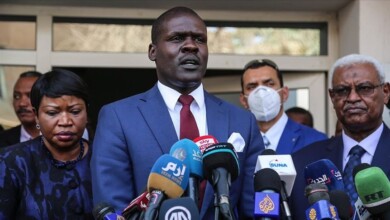The Military-Islamist Alliance in Sudan expands the circle of regional threat
Abdel Moneim Suleiman

Following the outbreak of war in Sudan in (April 2023), the alliance between Islamists and the military establishment has quietly and resolutely returned to the forefront, regaining the influence lost following the Sudanese people’s revolution in (December 2018).
While attention is focused on the military confrontations between the Sudanese Armed Forces (SAF) and the Rapid Support Forces (RSF), behind the scenes, political activity and regional alliances are taking place. Their impact on the future of Sudan and the region may be more dangerous than the sound of explosions echoing these days between Port Sudan and Nyala.
At a time when millions of Sudanese are looking forward to an end to the war and the devastating humanitarian crises it has caused, the Sudanese arena is witnessing a new rise of the Islamist project, as usual through the military, in a disturbing reproduction of the three-decade authoritarian era under Omar Al-Bashir’s regime. The rather striking part of the equation is, this alliance operates not only within Sudan’s borders, but also possesses direct links to the mullahs’ regime in Iran, a country that has resumed its relations with Sudan, serving as a military and intelligence party, in an influence and arms deal that could reconstruct the balance of power in the Red Sea and the Horn of Africa.
This alliance isn’t the product of an emergency or a reaction to temporary political isolation, as the Sudanese Army Commander-in-Chief tends to repeat in the deceptive (and secret) speeches he sends here and there, seeking to garner sympathy and mislead. Rather, its a strategic choice that reflects the intersection of ideological and military interests. The Islamists in Sudan, who managed to hijack political and military decision-making in Port Sudan, view Iran not simply as an ally, but as a model of a theocratic State governed through ideologically motivated Security and Military apparatuses. Their military wing within the Security and Military apparatuses (The Army, Intelligence Service, and Police Force) seeks to reproduce this model, using the rhetoric of “counterinsurgency” as a cover for a comprehensive war on democratic civil forces, especially the revolutionary forces.
The irony is that the de facto authority in Port Sudan presents itself as a defender of “National Sovereignty,” while exposing the country to growing foreign influence and working to connect Sudan to a regional anti-democratic network stretching from Sana’a to Gaza, through Tripoli, and finally to Khartoum.
The lawsuit filed by this illegitimate authority against the United Arab Emirates (UAE) before the International Court of Justice (ICJ), which the Sudanese party lost yesterday, is an example of the attempt to exploit international justice for political purposes. This lawsuit is backed by the Islamists in Sudan (Al-Kizan), supported by the International Organization of the Muslim Brotherhood, through funding, political and media support. They use the weapon of accusations of “treason” against their political opponents, while simultaneously forging secret partnerships with foreign powers such as Tehran. Instead of confronting internal crises, this alliance resorts to exporting the rhetoric of the “external enemy,” in a tiresome repetition of the justification narratives used for decades to justify repression, military coups, and the waging of wars against the Sudanese people.
Ignoring or supporting this alliance would only empower an exclusionary regime, taking the country back to a cycle of violence, corruption, and tyranny. The Islamists’ return to power through the military not only represents the end of the civil State project, but also threatens regional security, from the Red Sea to the coast, and even to Israel and Europe. It certainly threatens navigation in the Red Sea, and thus threatens the entire world by threatening international trade routes.
Today, a ceasefire isn’t the full extent of what is needed, furthermore, an end to the political project that fuels the war is an effort of utmost priority as well. The fundamental battle in Sudan is not, as it appears, between the Sudanese Army and the Rapid Support Forces. Rather, its a battle waged by an armed Islamist group with complex transnational connections, seeking to revive a totalitarian religious regime that has proven its danger and failure repeatedly in many parts of the world. The aforementioned armed Islamist group, is putting forth diligent efforts against another group seeking to build a democratic civil system that accommodates political, cultural, religious, and ethnic diversity, and form relations with the free world without preconditions.
Supporting true peace in Sudan doesn’t require merely ending the war through formal settlements that keep the actors involved in the war. Rather, it requires a parallel transitional process managed by civilians that excludes the Sudanese Islamic Movement (the Muslim Brotherhood) and all those with blood and corruption on their hands. They must be brought to prompt/fair trials, and their organization along with all its political fronts must be banned, designating them a transnational terrorist organization.
There can be no peace without trials and justice, and no stability without peace and democracy, as the Sudanese experience demonstrates.
Abdel Moneim Suleiman is a Sudanese writer, journalist and editor-in-chief of Sudan Peace Tracker (SPT).





